

GENERAL SITUATION IN MEXICO

MEXICAN AUTOMOTIVE INDUSTRY REPORT 2024
The Mexican Automotive Industry Report provides an overview of the transition of the industry to electromobility preparedness. Over the last several decades, the automotive industry in Mexico has emerged as a significant player on the global stage. Today, it plays a pivotal role in the world economy. With a strategic location, skilled workforce, and a favorable business environment, Mexico has become a key hub for automotive manufacturing.
MEXICAN AUTOMOTIVE INDUSTRY
Mexico’s trade liberalization efforts mean that the market is one of the most open and competitive in the world. Mexico is a global leader in automotive manufacturing.
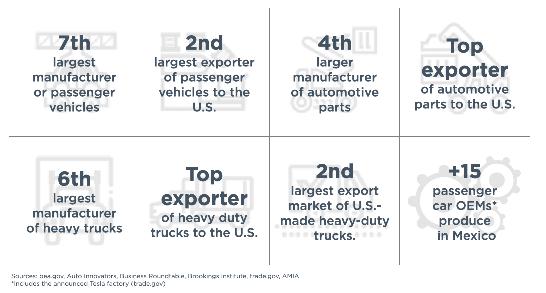
Mexico is a key ally and asset to the U.S.-based high-technology manufacturing including semiconductors and electric vehicles. The Mexican Automotive Industry Association (AMIA) estimates that Mexico will become the 5th largest global vehicle producer by 2025. The industry employs over 1 million professionals, including 300 R&D Centers. Of total automobile production, 87% is exported. Over 79% of those exports are destined for the U.S. marketplace.
Mexico is the 4th largest vehicle exporter globally after Germany, Japan and the United States. Over 95% of the automotive production in Mexico is light (passenger) vehicles and the rest is heavy trucks.

MEXICAN AUTOMOTIVE SUPPLY CHAIN
The Mexican Automotive Report includes insights from Prodensa VP & Sr. Partner, Carlos Alvarado, on the evolution of the industry and the transition to electromobility. Download it here
Mexico is the 4th largest producer of autoparts in the world, and 1st to the United States. More than half of the imported autoparts to Mexico compliment the local manufacturing lines. Much of this is then exported back to its original country. The primary countries of origin include the United States, China, Germany and Japan.

MEXICAN AUTOMOTIVE INDUSTRY REPORT 2024
Suppliers are pivoting to electric engines, which lack integral parts of an internal combustion vehicle such as gas tanks, exhaust valves, transmissions, fuel pumps, carburetors. One of the biggest challenges for Mexico will be batteries, electronics and electrical motors. Today, much of this content is brought from China for final assembly in Mexico. Additionally, new market opportunities emerge with the needs of new weight and efficiency requirements of EVs.
Read insights from Prodensa’s Director of Institutional Relations, Monica Lugo, on possible scenarios in the upcoming USMCA review in the Mexican Automotive Report, here
Major U.S. automotive companies have invested significantly in the Mexican automotive industry, enhancing cost-effectiveness and maintaining competitiveness in the global market. Established automakers in Mexico include: Audi, BMW, Ford Motor Company, General Motors, Honda, Hyundai, Jac by Giant Motors, Kia, Mazda, Mercedes Benz, Nissan; Stellantis, Toyota, Volkswagen, and Tesla (announced). In addition to major OEM’s, the automotive industry in Mexico boasts a robust and intricate supplier base.
Several Chinese suppliers have recently established a presence in Mexico, taking advantage of the country’s strategic location and the North American market. Some Chinese automakers with operations or plans to operate in Mexico include BYD Auto Co., Ltd., JAC Motors, Great Wall Motors, and Geely.
AUTOMOTIVE MANUFACTURING CLUSTERS
Automotive companies are located all over Mexico. Clusters promote joint efforts to develop more extensive local supply chains for the industry. For this map, clusters signify the highest percentage of installed production capacity, autoparts production, and industry employment.
MEXICAN AUTOMOTIVE INDUSTRY REPORT 2024

THE BAJIO REGION

The Bajío region is often referenced as the 3rd most important automotive cluster in North America. It represents nearly 50% of all vehicle production capacity in the country. Other supporting states in this cluster include Jalisco (Honda) and Querétaro, home to many Tier 1 suppliers.
Aguascalientes – The central Mexican state of Aguascalientes is home to one of the country’s most important assembly plants, Nissan. It is the 3rd largest exporter of vehicles in Mexico. About 20,000 workers in 35 Tier 1 plants supply this campus. Automotive manufacturing represents 85% of the state’s manufacturing exports.
Guanajuato –The state of Guanajuato in Bajío is an important automotive and logistics hub. General Motors, Volkswagen, Mazda, Honda and well over 400 Tier 1 & 2 autoparts supplier make up Guanajuato’s automotive cluster. The automotive industry makes up about 50% of the state’s manufacturing GDP, and 80% of the state’s total exports. It employs over 145,000 workers.
San Luis Potosi – The automotive industry in San Luis Potosí generates 85,000 jobs in the state. It is home to General Motors and BMW Group, and about 240 automotive suppliers. San Luis Potosí’s automotive industry exports about $10 billion in manufactured goods each year.
MEXICAN AUTOMOTIVE INDUSTRY REPORT 2024
THE NORTHERN BORDER STATES
The northern border states of Mexico represent over half of all autoparts production, a large share of them being maquiladoras. Notably within the cluster, Baja California is home to a Toyota plant in Tijuana. In the Gulf state of Tamaulipas, the city of Reynosa is an important autoparts maquiladora and logistics hub.
Sonora – This northern border state’s primary industry is automotive manufacturing. The Ford Stamping and Assembly Plant in Hermosillo has developed over 45 local suppliers, and their engineering center enrolls over 1,000 students. Notably, the state’s Port of Guaymas is on the Pacific coast. Nearly 28% of the state’s exports come from the automotive industry. This is growing due to Ford’s production of the new models, Maverick and Bronco Sport.
Chihuahua – The northern border state of Chihuahua has a robust automotive presence, including Ford Engine Plant and more than 400 suppliers. The state is well-known for automotive talent development, boasting 6 R&D centers. The automotive sector represents over 40% of the total manufacturing industry in the state. The border city of Juarez is a focal point of the maquiladora industry due to its location and infrastructure.
Coahuila – The automotive sector represents more than half of the northern border state’s manufacturing production. It is home to Stellantis, Daimler Freightliner and General Motors. In fact, GM announced a $1 billion e-mobility investment in its plant in the state. Coahuila has been a focal point of automotive investment in Mexico over the last years. Automotive exports in the state are around $5 billion, representing about 67% of the state’s total exports.
Nuevo Leon – The northern state of Nuevo León is the electromobility hub of Mexico. Home to KIA and a number of Tier 1 suppliers, the automotive industry in the state is the top employer and top exporting sector. Tesla announced a $5 billion dollar investment in their new Gigafactory in Nuevo León. The state boasts other important automotive operations such as Navistar (heavy trucks); Mercedes-Benz Group (buses); Polaris, CF Moto and Kawasaki (ATVs). Automotive exports in 2022 were $12 billion and officials are projecting growth.
MEXICAN AUTOMOTIVE INDUSTRY REPORT 2024
CENTRAL MEXICAN VALLEY
The valley in Central Mexico around the capital of Mexico City concentrates about a quarter of the country’s total population. It is an important logistics and e-commerce hub, among other things. The automotive industry is important, both as corporate headquarters in Mexico City, but also to multiple manufacturing hubs in the surrounding states. Morelos, another state in the cluster, produces about 5% of the country’s vehicles at their Nissan plant.
Mexico State – The automotive industry in Mexico State represents over 12% of GDP for the state. Three OEMs call the state home (Stellantis, General Motors, Ford) as well as more than 350 automotive companies that employ over 50,000 workers. The state is also home to automotive plants with announced investment in electric vehicles, including Ford and Stellantis. Mexico State exports over $6 billion in automotive goods with nearly a quarter of that in vehicles.
Puebla – The Central Mexican state of Puebla is home to Volkswagen and Audi. Over 65,000 employees in the state work in the automotive industry. The industry represents over 40% of the state’s GDP. Puebla is one of the top exporters of automobiles, with the majority share of their auto exports going to the United States, Germany or Canada.
REGIONAL COLLABORATION
Mexico has become a crucial partner for U.S. and Canadian automakers, providing a cost-effective and efficient manufacturing base and plentiful labor pool. The integrated supply chains between the three countries are vital for the competitiveness of North American automakers in the global market.
The United States, Canada and Mexico share a population of +500 million people, a GDP of nearly US$30 trillion dollars, and each alone are important, global economies. One of every 13 jobs in the U.S. is supported by trade with Canada or Mexico. In fact, about 50% of trade within North America occurs in “intermediate goods” – materials or components destined for final assembly within the same region.
The three countries literally build things together, and millions of jobs depend on that.
MEXICAN AUTOMOTIVE INDUSTRY REPORT 2024
NORTH AMERICA ELECTRIC VEHICLE INDUSTRY
Electric vehicles require fewer parts, compared to an internal combustion engine. As the industry is in transition, so too are the production networks throughout North America. Governments and private industry are facilitating growth in the EV industry with funding and incentives. More than a dozen new incentives enacted through the Inflation Reduction Act, the Infrastructure Investment and Jobs Act, and the CHIPS Act have driven investment and announced jobs. Mexico also has electromobility initiatives that support the USMCA goals.

MEXICAN AUTOMOTIVE INDUSTRY REPORT 2024
In 2021, two-thirds of plug-in EVs were assembled in the United States. Despite many new EV launches scheduled over the next few years, there is significant capacity gap in mining and refining battery materials. The United States lags far behind China. The Inflation Reduction Act will likely establish an EV supply chain for the long-term and draw large investments in EV battery capacity. By 2030, EV battery manufacturing capacity in North America will likely increase 20 times.



The battery pack of an EV is bulky and challenging to ship long distances, and accounts for about one-third of the total vehicle cost. Many of these facilities will co-locate with assembly plants for EV’s, similar to the ICE automotive footprint. Mexico is preparing for this opportunity as well as others in the electromobility sector.
Read more insights about USMCA energy in the Mexico Outlook 2024 blog post here
MEXICAN AUTOMOTIVE INDUSTRY REPORT 2024
MEXICAN EV AUTOMOTIVE SECTOR
There are many EV models produced in Mexico, including the Ford Mustang Mach-E, several JAC Motors models, the Chevrolet Blazer & Equinox EVs. In 2023, companies like Ford, General Motors, BMW Group, Audi, Giant Motors, and Toyota produced more than 100,000 EVs. In the same year, companies in the electromobility sector announced nearly 100 investments in Mexico. Among them:

There are more than 170 providers (Tier 1&2) of electromobility and electrification components in Mexico. They range from batteries, fuel cell systems, electric drive train, EV brake systems. There are more than 43 providers (Tier 3) of materials for the EV industry.
Mexico will be an important player in the transition to electric vehicles. Mexico the best ally to the U.S. to strengthen supply chains. Its growth potential is challenged by energy supply and regulation. EV sales in Mexico are expected to grow over coming years in the Mexican market, as Mexico pushes toward electrification goals.
Download the entire “Automotive Industry in Mexico” report here.
SOURCE: PRODENSA
KEYPOINTS OF PRESIDENT ANDRES MANUEL LOPEZ OBRADOR’S MORNING PRESS CONFERENCE
March 6-12, 2024
LABOR
• Labor reforms: In response to a specific question about reforms regarding doubling of year-end bonuses, 20-day paternity leave, and reduced work hours, President López Obrador stated that it’s necessary to wait for the people to choose; for these issues to be discussed and voted on after the elections. Regarding pensions, he criticized conservatives for wanting to reduce the age for pension eligibility to 60 years, accusing them of scavenging proposals. He emphasized that legislators are free to vote and approve legislative reforms.
POLITICAL AND GOVERNMENT ISSUES
• Death of normalista student: After normalista student Yanqui Kothan was killed by a policeman in Chilpancingo Guerrero, the president López Obrador lamented the situation and informed that the Attorney General’s Office will be asked to take over the case. He called on the legal advisor to the parents of the Ayotzinapa students not to engage in acts of provocation and to act responsibly. AMLO mentioned that steps are being taken to ensure that there is no impunity and that those responsible will be punished. The president acknowledged that there was an abuse of authority and that the young man was not the one who fired the shots,


KEYPOINTS OF PRESIDENT ANDRES MANUEL LOPEZ OBRADOR’S MORNING PRESS CONFERENCE
while emphasizing that this case is not related to the case of the missing students from Ayotzinapa. He pointed out that the alleged homicide police officer fled, but efforts are already underway to bring about justice.
HEALTH
• Corruption the public health sector: In response to a reporter’s question about accusations against Grupo Falcón and how the judiciary has facilitated the path for companies with corrupt practices, particularly noting that this group remains a provider for the ISSSTE, President Andrés Manuel López Obrador stated that his government continues to advance in the fight against corruption. He reiterated that for years, he has denounced acts of corruption, such as the FOBAPROA case. He asserted that upon taking office, there was rampant corruption, especially in the healthcare sector. Therefore, his government decided to establish a Mega Pharmacy to ensure there would be no shortage of medications in the country, which upset many people. Additionally, the president embarked on a tour of various states (Tamaulipas, Zacatecas, San Luis Potosí, Michoacán, Estado de México, Quintana Roo, Campeche, Tabasco, Morelos, and Mexico City) from March 7th to March 10th to evaluate the IMSS-Bienestar Program. On March 21st, he will meet with the 23 governors of the states where this program operates to report on the progress in improving public health services.

INTERNATIONAL AFFAIRS
• Javier Milei’s government: The president declined to comment on the government of Argentine President Javier Milei, citing respect for democratically elected governments. He criticized the neoliberal model, stating it benefits a minority while harming the majority. He mentioned Mexico’s economic growth, increased minimum wage, record foreign investment, and reduced poverty and social inequality as evidence that not following IMF recommendations is effective.
• Customs: López Obrador stated that the National Customs Agency is being built in Nuevo Laredo, which will be the headquarters of the Mexican Customs.
• Visa requirement for Mexicans travelling to Canada: The president clarified that Canadian visas only apply to asylum seekers, not workers, and expressed disagreement with Canada’s unilateral measure, which he believes will limit asylum seekers’ entry. The Secretary of Foreign Relations highlighted the significant demand for asylum in Canada.
KEYPOINTS OF PRESIDENT ANDRES MANUEL LOPEZ OBRADOR’S MORNING PRESS CONFERENCE
JUDICIAL BRANCH
• Cooperation with previous Supreme Court Minister Arturo Zaldívar: Andrés Manuel López Obrador stated that he had a good relationship with the former President of the Supreme Court of Justice of the Nation, Arturo Zaldívar. However, he assured that he has not had relationships of complicity with him or anyone else, but rather cooperation in cases they considered fundamental, such as the Ayotzinapa case.
MEDIA
• Journalists opposing AMLO’s government: The president emphasized that journalists such as Ciro Gómez Leyva, Carlos Loret de Mola, and Joaquín López Dóriga, are all serving conservatism and elites, as well as media outlets such as Televisa, Azteca, and Imagen. In past administrations, media owners were the ones in charge of prisons, charging 5 thousand pesos per inmate daily. They received billions of pesos in concessions to build roads and hospitals. AMLO stated that the head of the conservative bloc is Claudio X González, advised by Jorge Castañeda.
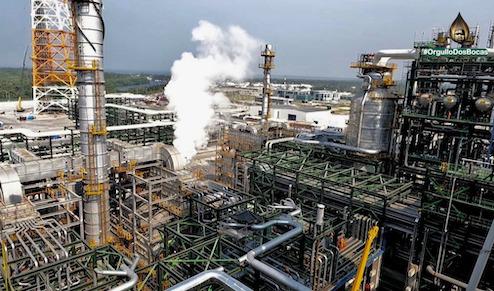
ENERGY
• Mexican refineries: Andrés Manuel López Obrador read statements from the Mayor of Cadereyta regarding the closure of the refinery, which aligns with Xóchitl Gálvez’s proposal. He mentioned that Pemex is progressing and expects Dos Bocas refinery to produce 20% of Mexico’s gasoline needs by April. He highlighted the timely and cost-effective construction of Dos Bocas. He emphasized that his government’s refinery plan has prevented gasoline price increases, recalling Mexico’s previous dependence on Texas refineries. Regarding accusations of pollution from the Cadereyta refinery, he stated that Pemex’s Director will provide information on its emissions, which are within norms and even below. He criticized conservatives for attempting to close refineries with false information, expressing support for Pemex. He acknowledged the need for an energy transition but estimated it would take three decades and emphasized ongoing investment in existing refineries to increase capacity and match US refinery percentages.
NEWS BY STATE



BAJA CALIFORNIA
Labor productivity in Baja California’s manufacturing industries grew 5% during the fourth quarter of 2023 compared to the same period of 2022, according to the National Institute of Statistics and Geography (Inegi).
In the case of unit labor costs, the state grew by 5.3% in manufacturing industries, being one of the states with the lowest growth at the national level.
SOURCE: EL IMPARCIAL

SONORA
Sonora’s manufacturing industry concluded last year with an increase in efficiency, which was reflected in higher labor productivity and lower unit labor costs, according to information from the National Institute of Statistics, Geography and Informatics (Instituto Nacional de Estadística, Geografía e Informática).
The data mentioned by Inegi show that labor productivity in Sonora’s manufacturing industry grew by 13.1 percent in the last quarter of 2023, compared to the previous year.
SOURCE: EXPRESO
NEWS BY STATE


TAMAULIPAS
In order to strengthen commercial alliances between the cities of Matamoros, Tamaulipas and Brownsville, Texas, the Brownsville Incentives Corporation (GBIC) participated in a meeting and tour of the main industrial parks in Matamoros, with the Matamoros Economic Development Committee (CODEM).
The meeting addressed the various strengths of the region, on topics such as industrial manufacturing, the presence of international bridges specialized in commercial cargo, statistics, industrial and labor growth.
SOURCE: MEXICO INDUSTRY

COAHUILA
If better use is made of the nearshoring opportunity, more formal employment will be created, said local congressman Felipe González, member of the Economic Development Commission of the Coahuila State Congress.
This is the purpose of the international tour that Governor Manolo Jiménez Salinas will undertake to promote Coahuila, in addition to setting up promotion offices in China, the United States, Europe and Mexico City.
SOURCE: VANGUARDIA


NUEVO LEÓN
With the aim of highlighting the solidarity, union and strength of women in the industry, Index Nuevo León announces the launch of the Women in Manufacturing Committee.
In the framework of International Women’s Day, Index Nuevo León’s collaborators recognize the leadership and innovation with which they drive the industry every day. They explain that by the end of 2023, more than 3,335 women led the change in manufacturing in the country.
SOURCE: LIDER EMPRESARIAL

NEWS BY STATE

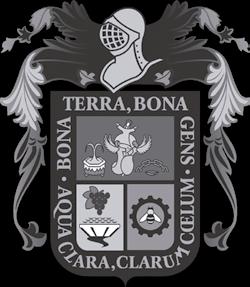
AGUASCALIENTES
In Aguascalientes, local industry is undergoing a period of transformation and expansion with the planning of three industrial parks, as revealed by Tagosam Salazar Imamura, director of the Fideicomiso de Desarrollos Industriales del Estado, who explained that the main focus of this new phase of development is the creation of infrastructure to accommodate the nearshoring phenomenon.
In an interview with El Heraldo, the official pointed out that today, the State Government is home to nine industrial parks that constitute the core of industrial activity in the region, with more than 280 companies in various sectors.
SOURCE: HERALDO
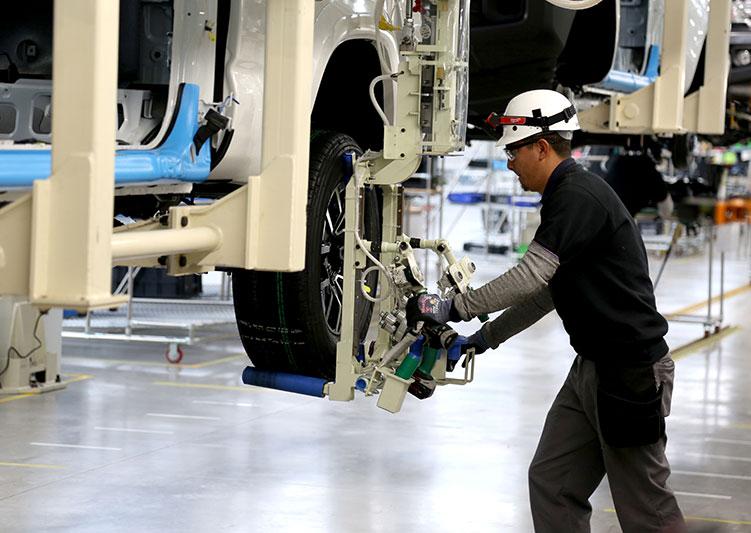

JALISCO
Businessmen and authorities of Jalisco will go out to look for new investment projects in the technology sector, both in the Silicon Valley of San Jose, California, and in Austin, Texas.
Prior to the visit they will make next April, the Association of Maquiladora and Manufacturing Export Industries (INDEX) West, plans to attract investments for 350 million dollars this year, although the figure could grow after the tour of the United States, said the president of the organization, Guillermo del Río.
SOURCE: EL ECONOMISTA
NEWS BY STATE


SAN LUIS POTOSI
The governor of San Luis Potosi, Ricardo Gallardo Cardona, held key meetings in Japan on Tuesday to strengthen international relations and explore opportunities to boost the state’s development.
During his second day of his working tour in Japan, Gallardo Cardona met with Yasushi Hosaka, Japan’s Vice Minister of Foreign Affairs, where they discussed proposals and programs to promote the economic and social development of San Luis Potosi.
SOURCE: RADIO FORMULA

QUERÉTARO
The Querétaro Automotive Cluster today presented the highly anticipated Querétaro Automotive Summit 2024, a strategic event designed to foster collaboration, innovation and growth within the automotive industry.
With a focus on sustainability, innovation, strategic alliances and business opportunities, this meeting aims to address head-on the emerging challenges and opportunities in the global automotive landscape, with a special focus on the growing importance of electromobility.
SOURCE: CLUSTER INDUSTRIAL
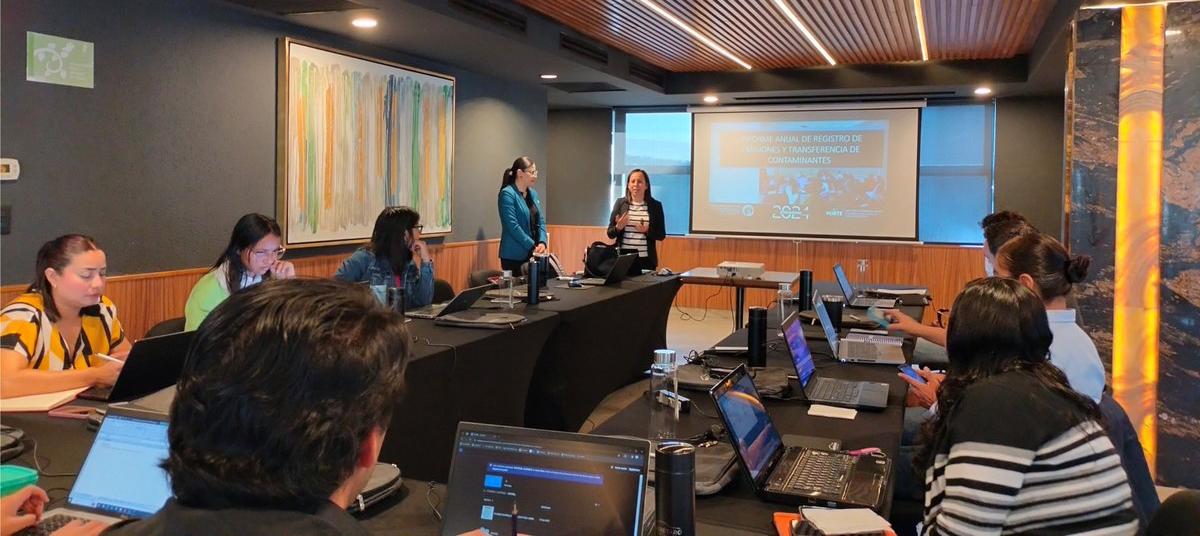
NEWS BY STATE

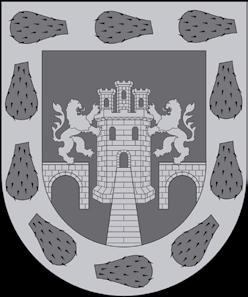
CDMX
The nearshoring trend has spurred developers to construct and lease new industrial spaces in response to the demand from companies entering the country. The metropolitan area of Mexico City has become a particularly active hub for industrial construction, ranking as the second most dynamic market in terms of development. In the first month of the year alone, industrial development in this region exceeded 732,000 square meters. Among the most important projects to be inaugurated in the coming months are the following: Vesta Punta Norte, Cuautitlán City Park, and Danhos Cuautitlán Park.
SOURCE: EL ECONOMISTA
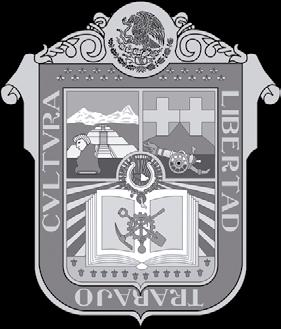
STATE OF MEXICO
Fábrica de Jabón La Corona, a company led by Rodolfo Andreu Barrera, will invest 153 million pesos in the expansion of its vegetable oil plant, which is currently operating in the Xalostoc Industrial Park, Ecatepec de Morelos. “The objective of the project is to expand the production capacity of vegetable oil within the facilities of the La Corona Soap Plant, located within the Xalostoc Industrial Park,” reveals documentation held by Forbes Mexico.
SOURCE: FORBES
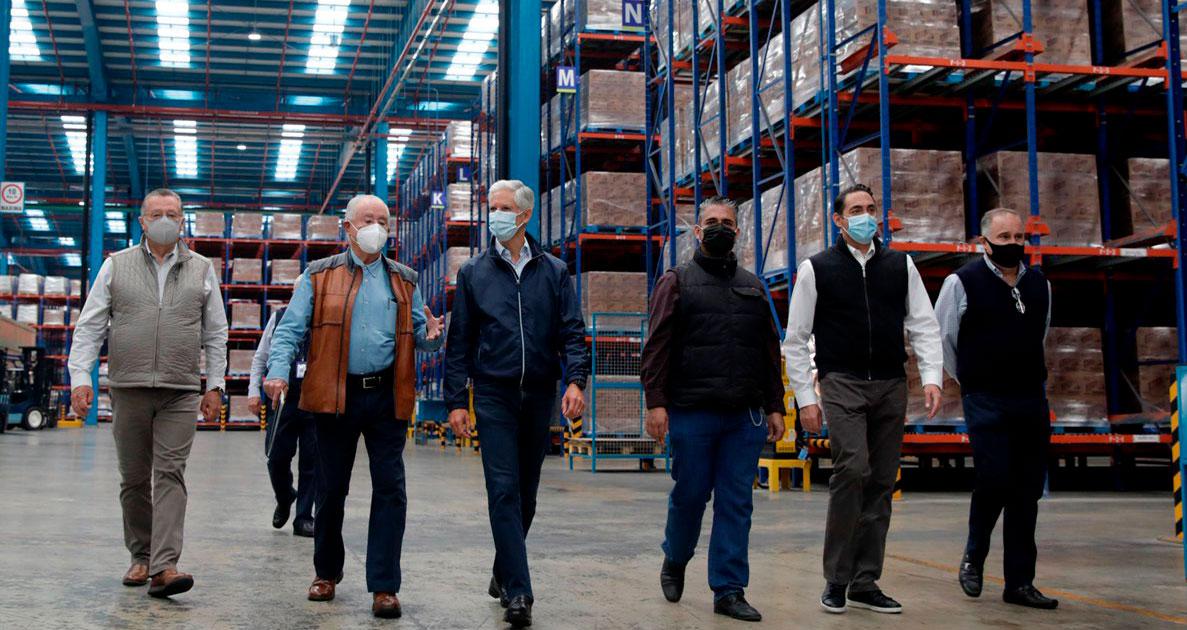
INVESTMENT NEWS
NORTH
POASHAN-ROCA
The automotive company announces the 45 million dollars investment to expand its facility in Ramos Arizpe, Coahuila. The number of jobs that will create 300 jobs.
CENTRAL MEXICO
YUSEI HOLDINGS
The automotive company announced the intention to invest 83.3 million dollars in Guanajuato and the creation of 500 jobs. The municipality location details remain unconfirmed.
NEXTEER
The American automotive manufacturer announced the expansion of a new facility in El Marqués, Querétaro, with a 20 million dollars investment. The project is set to create 400 jobs in the region.
NIPPON STEEL
The Japanese automotive company announced the investment for a new facility in Apaseo el Grande, Guanajuato with a 71.4 million dollars investment. The investment is set to create 200 jobs in the region.
MINTH
The EV batteries manufacturer announced the investment for new expansion in Aguascalientes with a 173.9 million dollars investment. The project is set to create 1,600 jobs in the region.

HITEC
The high-pressure machinery manufacturer announced the intention to invest 10 million dollars in Colón, Querétaro and the creation of 100 jobs. The municipality location details remain unconfirmed.
CDMX
WALMART
The retail company announced the investment for new grocery shops in Estado de México with a 73.9 million dollars investment. The project is set to create 1,250 jobs in the region.
SOURCES: CLUSTER INDUSTRIAL, DIARIO DE QUERETARO, 8 COLUMNAS
